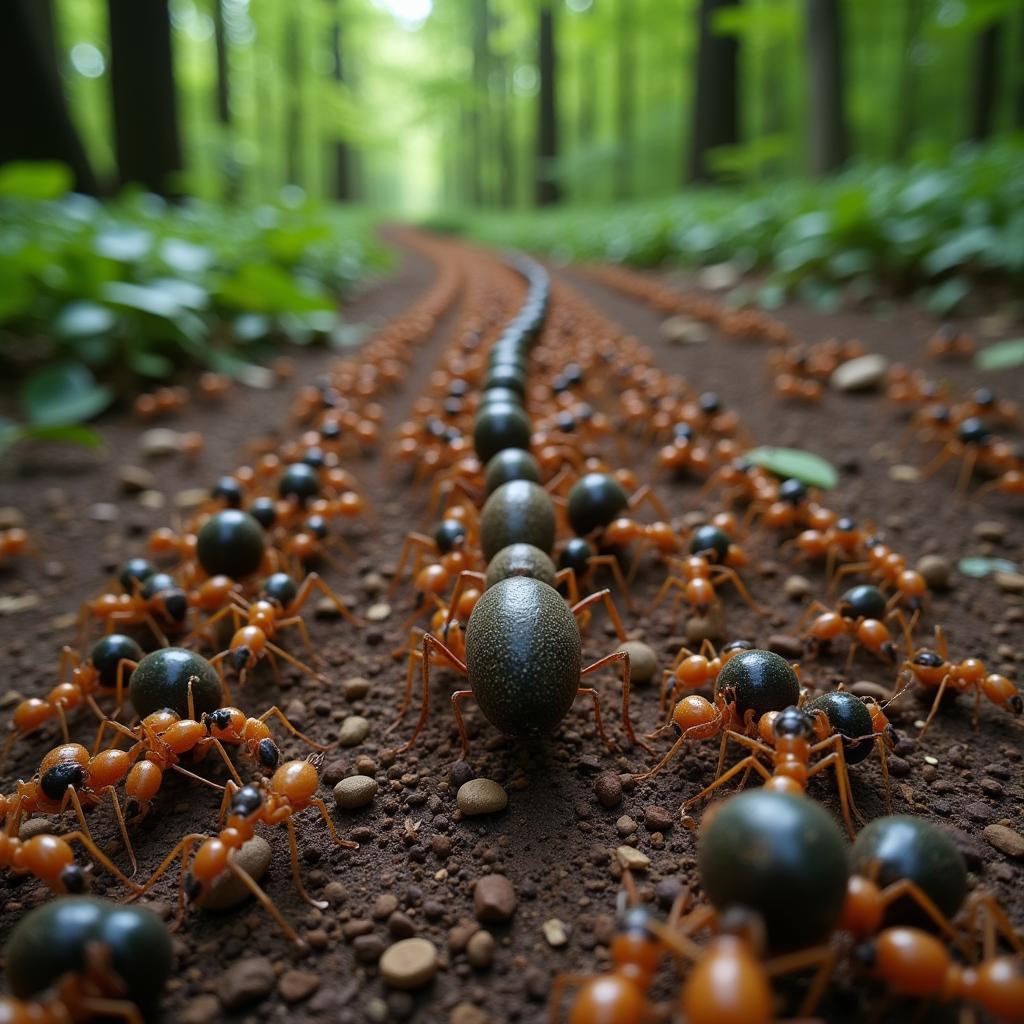African Elephants in Captivity: A Complex Reality
African Elephants In Captivity have long been a subject of debate. This article explores the multifaceted aspects of keeping these magnificent creatures in human-controlled environments, examining both the welfare concerns and the potential benefits.
The Ethics of Keeping African Elephants in Captivity
The practice of keeping African elephants in captivity has garnered significant criticism from animal welfare advocates. These majestic animals, accustomed to roaming vast distances in their natural habitat, often face restricted space and limited social interaction in captivity. This can lead to a range of physical and psychological problems, including stereotypical behaviors like swaying and pacing, indicative of stress and boredom. One major concern is the inability of captive environments to fully replicate the complex social structures of wild elephant herds. The close bonds formed within these herds are essential for the emotional and social development of individual elephants, and their disruption in captivity can have devastating consequences.
Furthermore, the limited space available in many captive settings can hinder the elephants’ ability to exercise their natural behaviors, such as foraging and exploring. This lack of physical and mental stimulation can contribute to health problems and a decline in overall well-being. african elephant lifespan can be significantly shorter in captivity due to factors like stress, inadequate nutrition, and lack of access to proper veterinary care.
The Conservation Argument for Captivity
Despite the ethical concerns, some argue that holding African elephants in captivity plays a crucial role in conservation efforts. Captive breeding programs, for instance, aim to increase the population of endangered species and contribute to the genetic diversity of the species. These programs also offer opportunities for research into elephant biology and behavior, providing valuable insights that can inform conservation strategies in the wild. african animals in zoo allows for controlled study of these animals.
“Captive breeding programs can serve as a safety net against extinction, especially for critically endangered species,” says Dr. Anika Malima, a renowned wildlife veterinarian from Tanzania. “While it’s not ideal, it offers a way to preserve genetic diversity and potentially reintroduce elephants back into the wild in the future.”
Moreover, zoos and other captive facilities can raise public awareness about the threats facing African elephants in the wild, including habitat loss and poaching. By providing educational programs and opportunities to observe these magnificent creatures up close, zoos can inspire conservation action and foster a sense of connection between people and wildlife. african elephant baby indian elephant baby both elicit strong reactions from visitors, and can be used as educational opportunities.
Finding a Balance: Improving the Welfare of Captive Elephants
Recognizing the need for improvement, many zoos and sanctuaries are striving to create more enriching environments for their African elephants. Enclosures are becoming larger and more naturalistic, providing more space for the elephants to roam, socialize, and engage in natural behaviors. african bush alephone in cage is a stark reminder of the need for larger and more natural enclosures. Enrichment programs, including puzzle feeders and social interaction opportunities, are being implemented to stimulate the elephants’ minds and prevent boredom.
“We’re constantly working to enhance the lives of the elephants in our care,” states Dr. Jabari Nkosi, Director of the Nairobi Wildlife Sanctuary. “By prioritizing their physical and psychological well-being, we aim to provide them with the best possible quality of life in captivity.”
Is it ethical to keep African Elephants in captivity?
The ethical considerations are complex and often depend on the specific circumstances of the captive environment.
What are the welfare concerns regarding African elephants in captivity?
Key concerns include restricted space, limited social interaction, and the inability to express natural behaviors.
How can the lives of captive African elephants be improved?
Creating larger, more naturalistic enclosures, enriching their environment, and providing proper veterinary care are crucial steps.
In conclusion, the issue of African elephants in captivity presents a complex dilemma. Balancing the ethical concerns with the potential conservation benefits requires a thoughtful and nuanced approach. Continuously striving to improve the welfare of captive elephants while working towards the long-term goal of protecting their wild counterparts is essential. We must continue to evaluate the role of zoos and sanctuaries in conservation and work towards ensuring the best possible outcomes for these magnificent creatures.
FAQ
- What is the average lifespan of an African elephant in captivity?
- How do captive breeding programs contribute to elephant conservation?
- What are the main challenges of keeping African elephants in captivity?
- What are the signs of stress in captive elephants?
- How can zoos educate the public about elephant conservation?
- What are some alternative approaches to elephant conservation?
- How can individuals support elephant conservation efforts?
Other articles you may like: african bullfrog croak.
When you need support, please contact us Phone Number: +255768904061, Email: [email protected] Or visit: Mbarali DC Mawindi, Kangaga, Tanzania. We have a 24/7 customer service team.


